Article
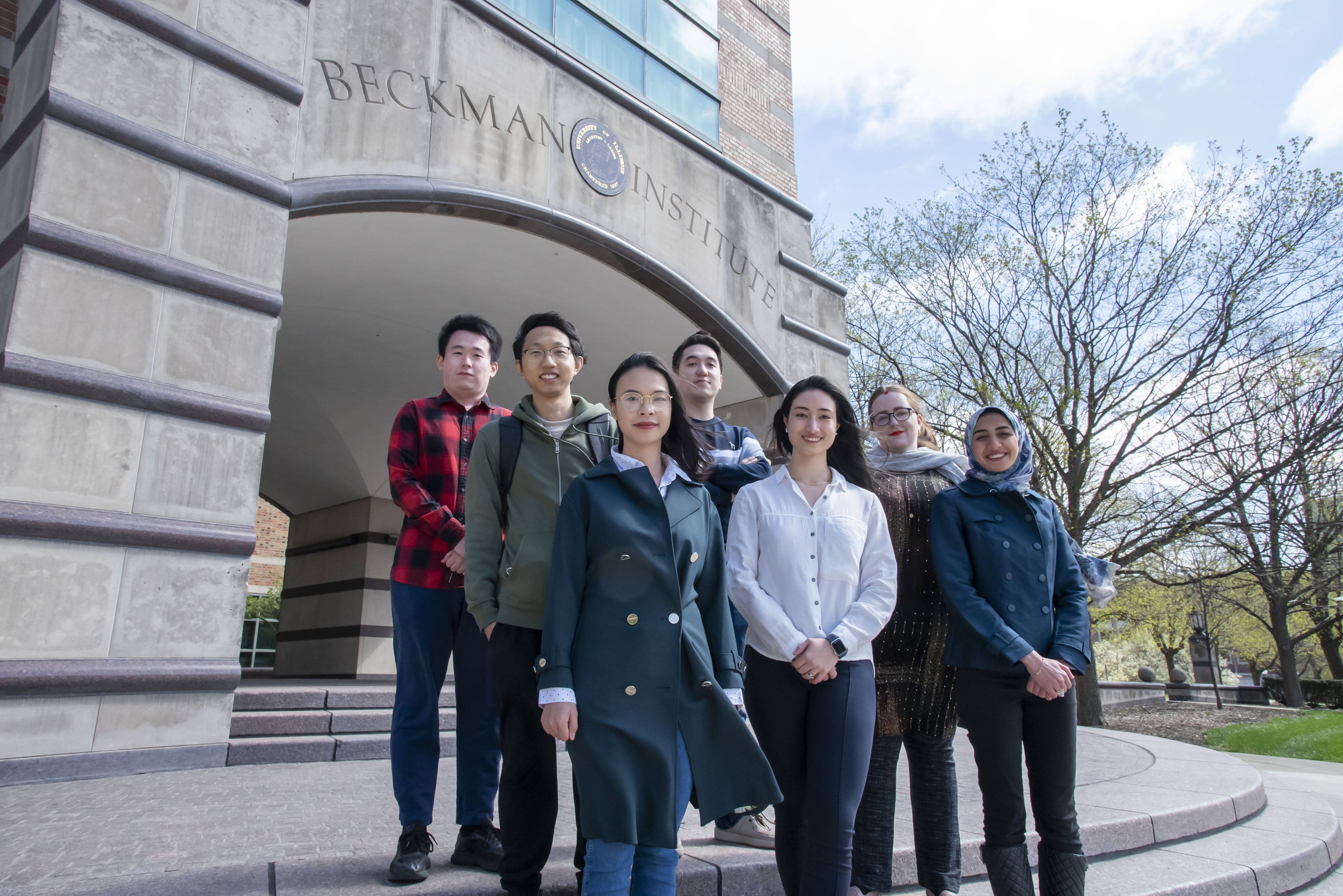 The 2022 Beckman Institute Graduate Fellows are (from left): Zhengchang Kou, Yunyan Sun, Jialu Li, Zepeng Wang, Defne Gorgun Ozgulbas, Megan Finnegan, and Sohaila Aboutaleb.
The 2022 Beckman Institute Graduate Fellows are (from left): Zhengchang Kou, Yunyan Sun, Jialu Li, Zepeng Wang, Defne Gorgun Ozgulbas, Megan Finnegan, and Sohaila Aboutaleb.
The best interdisciplinary collaborations are the ones that ask questions, and the seven students awarded 2022 Beckman Institute Graduate Fellowships are prepared to find the answers.
How can brain imaging reveal the relationship between cyberbullying and mental health? What can computer models teach us about treating the flu? Why do electrical engineers and family studies experts make a great team?
The 2022 class of fellows includes: Sohaila Aboutaleb, mechanical science and engineering; Megan Finnegan, psychology and neuroscience; Defne Gorgun Ozgulbas, the Center for Biophysics and Quantitative Biology; Zhengchang Kou, electrical and computer engineering; Jialu Li, electrical and computer engineering; Yunyan Sun, chemistry; and Zepeng Wang, bioengineering.
Read on to learn about the 2022 honorees:
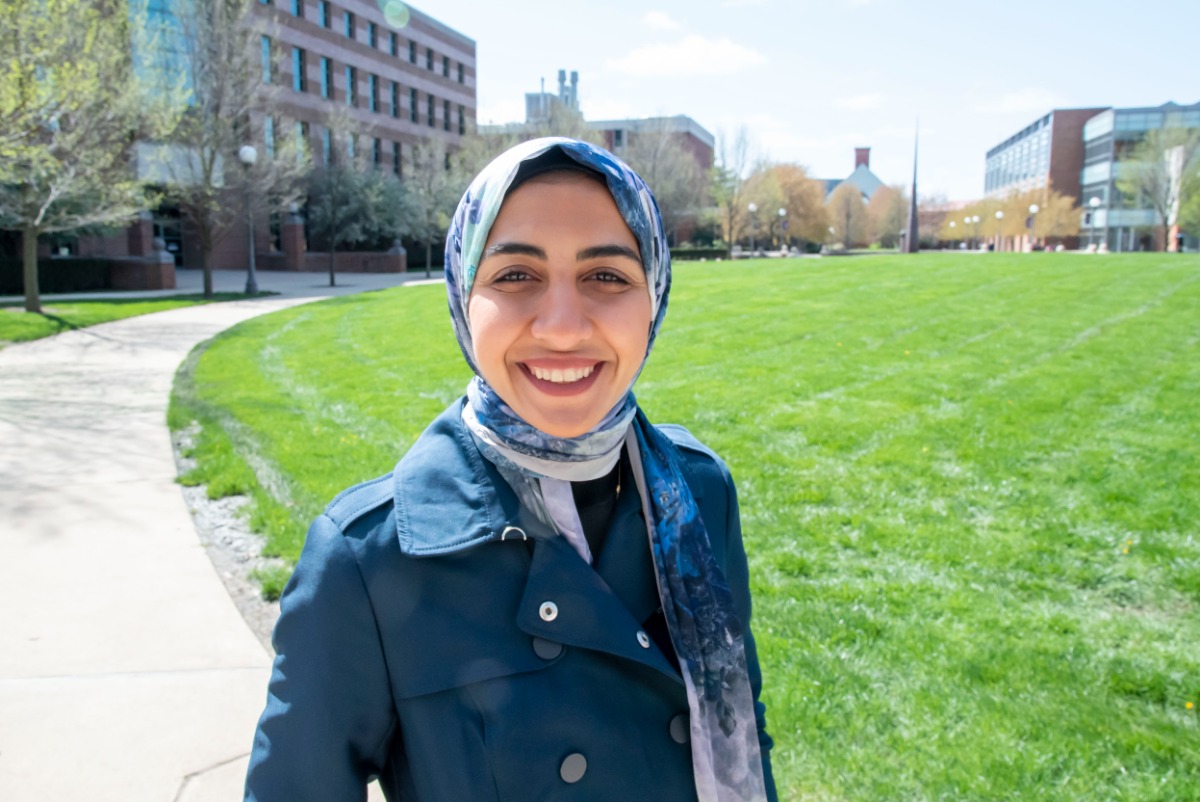 Sohaila Aboutaleb is pursuing a Ph.D. in mechanical science and engineering.
Sohaila Aboutaleb is pursuing a Ph.D. in mechanical science and engineering.
Sohaila Aboutaleb is pursuing a Ph.D. in mechanical science and engineering. She earned her M.S. in mechanical science and engineering from UIUC in 2021, and her B.S. in mechanical engineering from The American University in Cairo.
Her research focuses on improving bone regeneration and repair in patients suffering from fractures and degenerative diseases like osteoporosis. Often, these conditions are treated with bone grafting: using bone from the patient’s body to repair the damaged portion. However, grafting is not always available to clinicians, and may increase the risk of complications. Aboutaleb is investigating an alternative method called scaffold-based bone regeneration that uses 3D-printed scaffolds instead of bone. She'll use Beckman’s state-of-the-art imaging technology to study how the scaffolds’ mechanical and biological properties can be optimized for bone repair.
Aboutaleb will collaborate with Amy Wagoner Johnson and Randy Ewoldt, both professors of mechanical science and engineering; Mariana Kersh, an associate professor of mechanical science and engineering; and Rohit Bhargava, a professor of bioengineering and the director of the Cancer Center at Illinois.
.jpg?Status=Master&sfvrsn=680656ac_1) Megan Finnegan is pursuing Ph.D.s in psychology and neuroscience.
Megan Finnegan is pursuing Ph.D.s in psychology and neuroscience.
Megan Finnegan is pursuing Ph.D.s in psychology and neuroscience. She earned her M.S. in psychology from UIUC in 2020 and her B.S. in cognitive science from the University of California, Merced.
Finnegan is examining the relationship between female teenagers’ wellbeing and a type of cyberbullying called online exclusion. She is interested in how the biological processes that occur in the brain during exclusion can help predict future mental health outcomes. Using the neuroimaging facilities in Beckman’s Biomedical Imaging Center, she will monitor participants’ brain activity during a computer-simulated online exclusion scenario. She’ll develop new software to track how brain regions communicate with one another throughout the scenario, noting the precise moments when changes occur. Identifying these critical time points will help Finnegan use in-the-moment biological processes to predict the risk of depression and suicidal thoughts in female teenagers.
Finnegan will collaborate with Wendy Heller, a professor of psychology and the Department Head; Karen Rudolph, a professor of psychology; Lav Varshney, an associate professor of electrical and computer engineering; Sepideh Sadaghiani, an assistant professor of psychology; and Yuguo Chen, a professor of statistics.
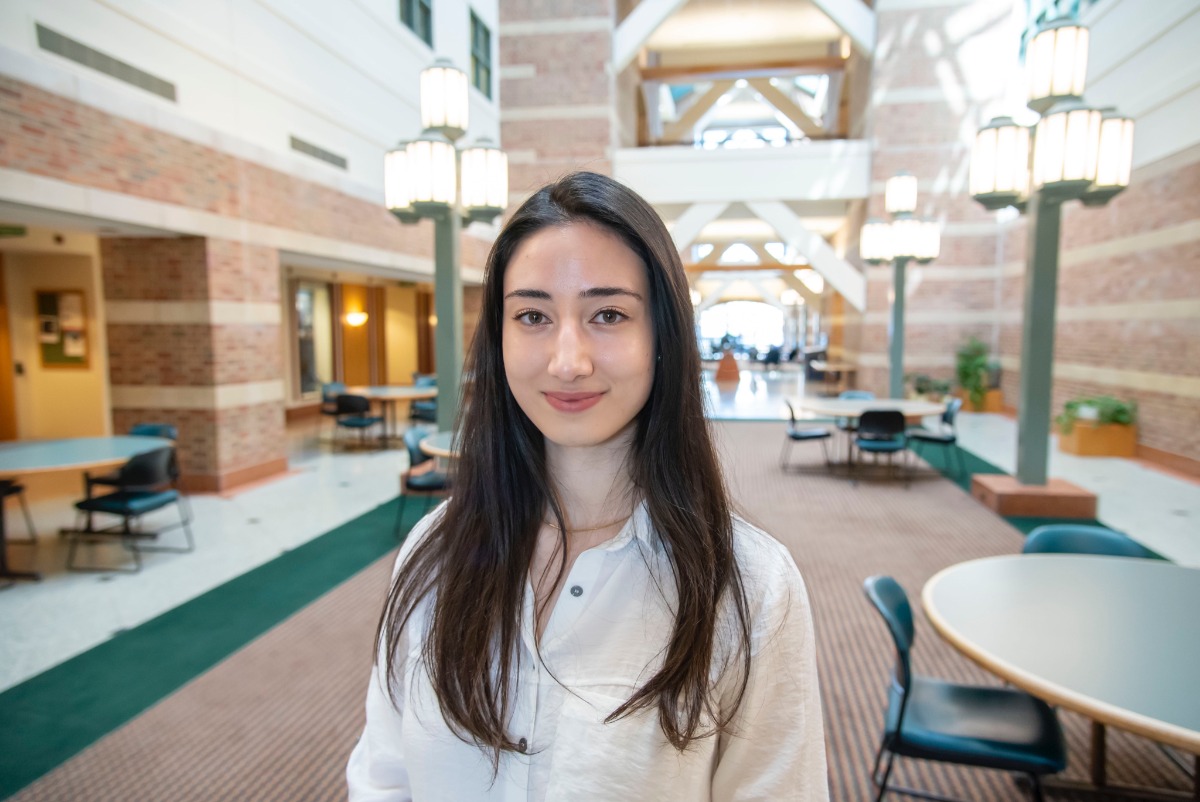 Defne Gorgun Ozgulbas, a Ph.D. student in the Center for Biophysics and Quantitative Biology.
Defne Gorgun Ozgulbas is a Ph.D. student in the Center for Biophysics and Quantitative Biology and expects to graduate in August 2023. She earned her B.S. in biomedical engineering from TOBB University of Economics
and Technology in Ankara, Turkey.
Defne Gorgun Ozgulbas, a Ph.D. student in the Center for Biophysics and Quantitative Biology.
Defne Gorgun Ozgulbas is a Ph.D. student in the Center for Biophysics and Quantitative Biology and expects to graduate in August 2023. She earned her B.S. in biomedical engineering from TOBB University of Economics
and Technology in Ankara, Turkey.
Her research is focused on understanding how antibodies bind to and block contagious respiratory illnesses like the flu from entering human cells. Typically, viruses cross into host cells with the help of a protein functioning like a footbridge, attaching to the host cell on one side and the viral membrane on the other. A protein called hemagglutinin, or HA, performs this connecting role for the influenza virus. Anti-HA antibodies can interrupt the process by preventing a key conformational change — or a change in shape — that the HA protein undergoes to function as a bridge. Without that conformational change, infection is not possible. Gorgun Ozgulbas will use advanced computer modeling and molecular dynamics simulations to examine how anti-HA antibodies interact with the viral membrane. Ultimately, her work will help guide the development of influenza treatments.
She will collaborate with Emad Tajkhorshid, a professor of biochemistry; and Nicholas C. Wu, an assistant professor of biochemistry.
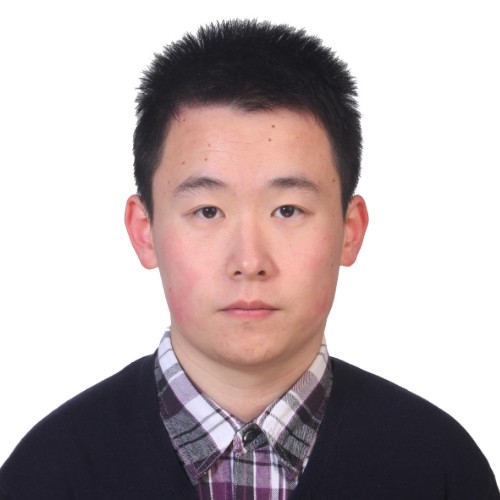 Zhengchang Kou, who is pursuing a Ph.D. in electrical and computer engineering.
Zhengchang Kou is pursuing a Ph.D. in electrical and computer engineering. He earned his M.S. in electrical engineering in from UIUC in 2020.
Zhengchang Kou, who is pursuing a Ph.D. in electrical and computer engineering.
Zhengchang Kou is pursuing a Ph.D. in electrical and computer engineering. He earned his M.S. in electrical engineering in from UIUC in 2020.
Well-versed in the complex circuitry and formidable hardware that enable researchers and clinicians to look inside the human body, Kou will help advance Beckman’s ultrasound imaging capabilities. He is focusing on a technique called ultrasound localization microscopy, or ULM, which provides higher-resolution imaging than MRI and can be used to diagnose cancer, detect diseases in the blood vessels surrounding the brain, and even help treat traumatic brain injuries. Kou and his team aim to take this technology — and Beckman’s research — to the next level by designing, demonstrating, and building a ULM hardware platform capable of continuously imaging the brain in real time and at ultrafast speeds.
He will collaborate with Michael L. Oelze, a professor of electrical and computer engineering; Pengfei Song, an assistant professor of electrical and computer engineering; and Daniel Llano, an associate professor of molecular and integrative physiology.
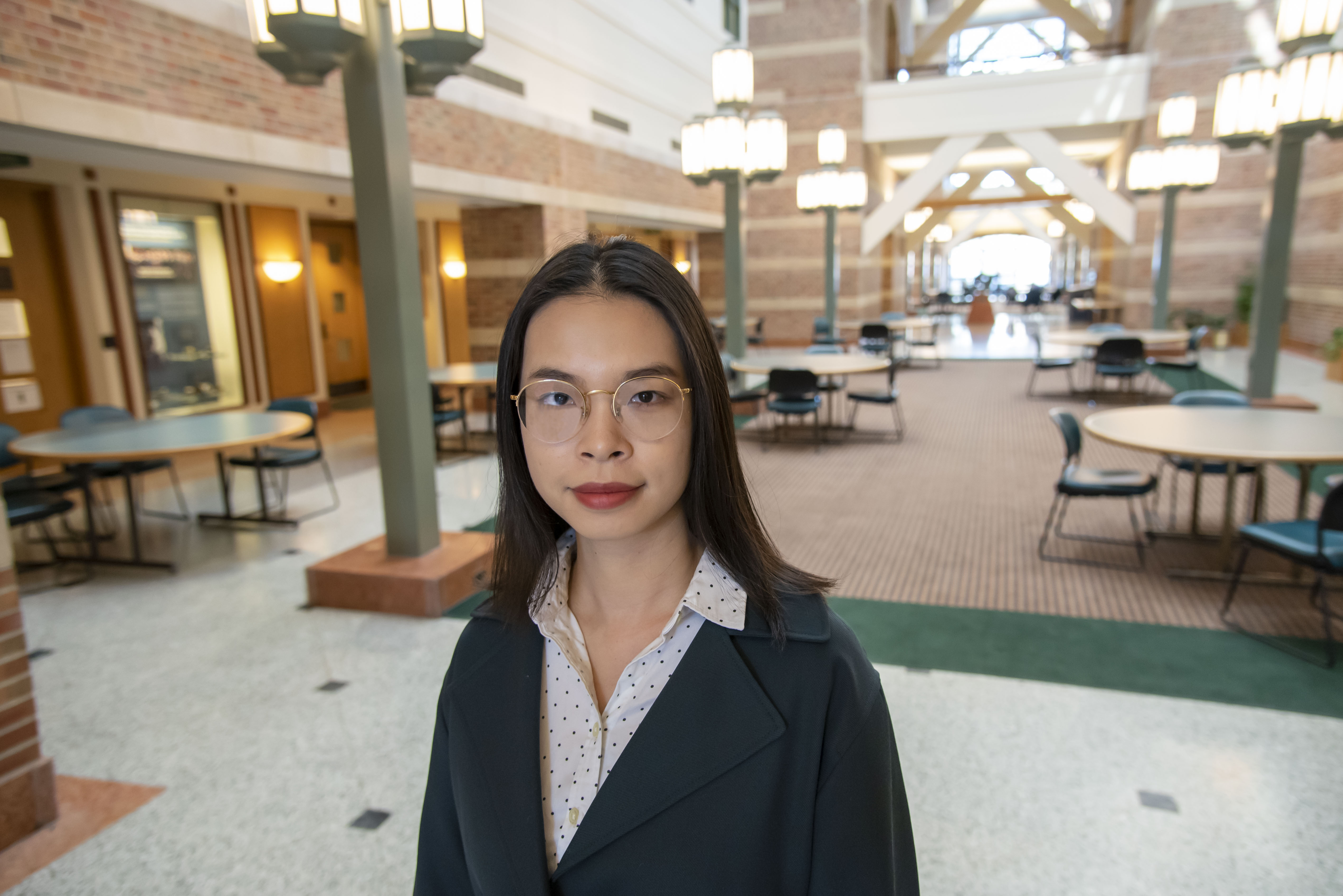 Jialu Li is pursuing a combined M.S. and Ph.D. in electrical and computer engineering.
Jialu Li is pursuing a combined M.S. and Ph.D. in electrical and computer engineering.
Jialu Li is pursuing a combined M.S. and Ph.D. in electrical and computer engineering and expects to graduate in May 2023. She earned her B.S. in electrical engineering from UIUC in 2017.
Li’s research draws on electrical engineering and family studies to investigate how an automatic audio analysis of at-home family interactions can help monitor children’s mental health at an early stage. She’ll focus on analyzing the vocalization patterns of parent-infant interactions and identifying infant behaviors that may correlate with mental health problems later in life. To gather data, Li and her colleagues developed an infant wearable multi-modal device called Littlebeats that can record audio, infant movement, and infant heart rate variability (which indicates stress). Researchers will use machine learning algorithms to analyze all three measurements and obtain a comprehensive understanding of infant psychological development. Li’s goal is to help parents, physicians, and early childhood educators better identify children who are at risk for mental health problems, and support children’s social-emotional development in the long run.
Li will collaborate with Mark A. Hasegawa-Johnson, a professor of electrical and computer engineering, and Nancy L. McElwain, a professor in the Department of Human Development and Family Studies.
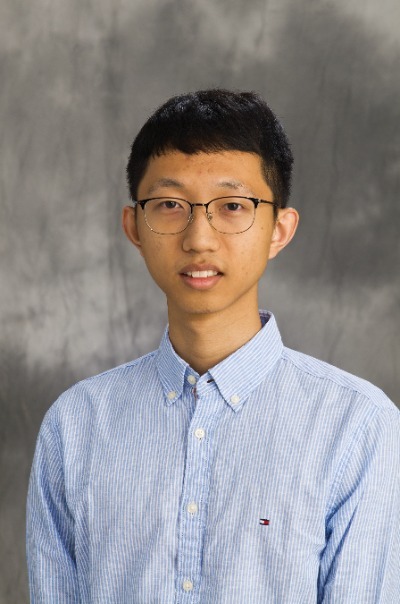 Yunyan Sun, a Ph.D. student in chemistry.
Yunyan Sun, a Ph.D. student in chemistry.
Yunyan Sun is a Ph.D. student in chemistry advised by Jeff Moore, a professor of chemistry and the director of the Beckman Institute. Sun earned his B.S. in chemistry from ShanghaiTech University in China.
In small doses, gaseous signaling molecules like carbon monoxide and nitric oxide can be used as therapeutic agents to treat cancers, infections, and neurodegenerative diseases. To safely deliver these and other drugs into the body, Sun and his team are investigating a type of force-sensitive molecule known as a mechanophore. Earlier in the year, Sun, Moore, and colleagues discovered the first mechanophore to release controlled amounts of carbon monoxide in response to mechanical stimuli; Sun’s current research will build on this work to make advancements in targeted drug delivery.
In addition to Moore, Sun will collaborate with Yun-Sheng Chen, an assistant professor of electrical and computer engineering; and Michael L. Oelze, a professor of electrical and computer engineering.
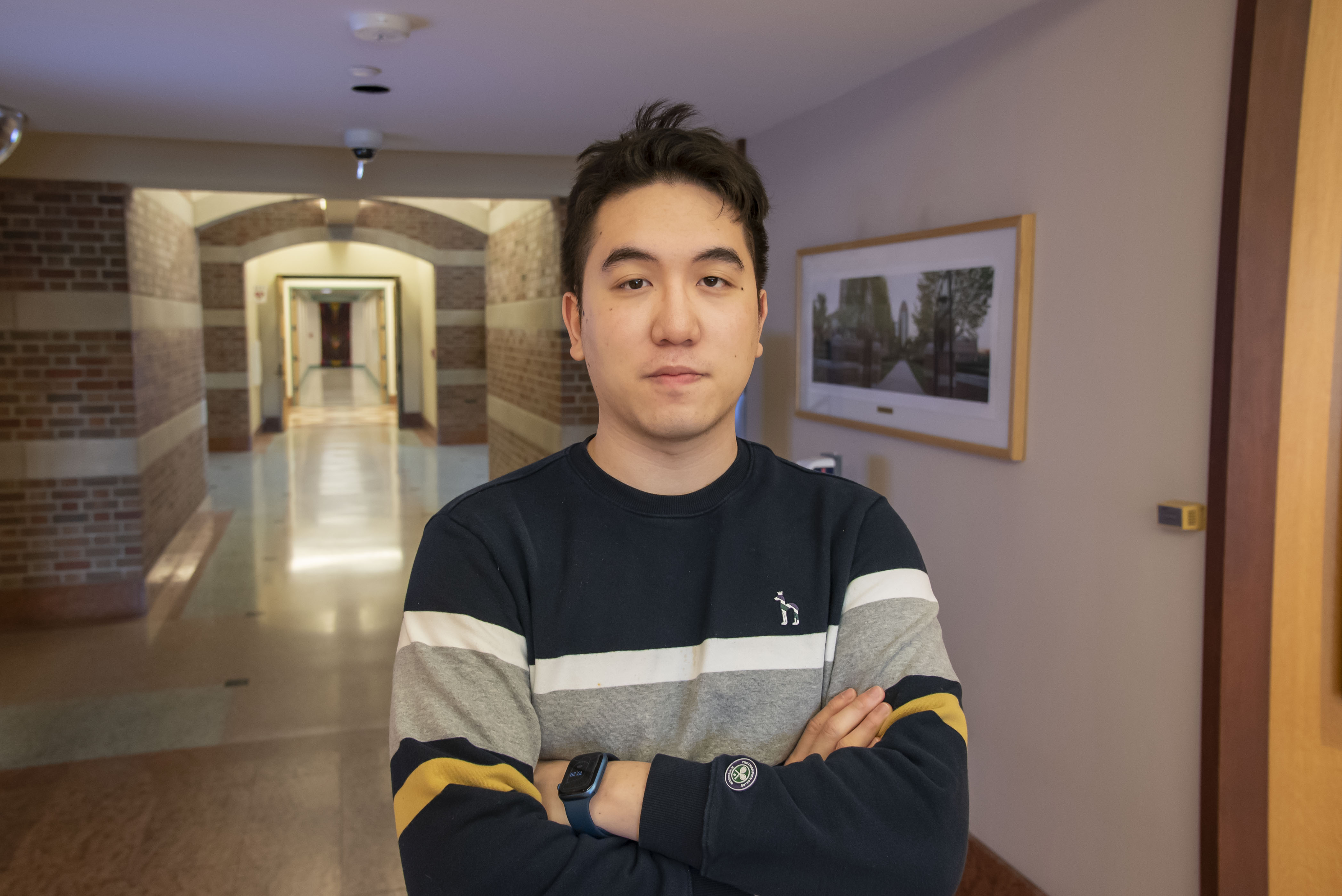 Zepeng Wang, a Ph.D. candidate in bioengineering.
Zepeng Wang, a Ph.D. candidate in bioengineering.
Zepeng Wang is a Ph.D. candidate in bioengineering. He earned his bachelor of engineering in biomedical engineering from Tsinghua University in Beijing, China, in 2019.
Conducted at Beckman and Carle Foundation Hospital, Wang’s research is focused on developing novel, quantitative technologies to help clinicians diagnose, monitor, and treat brain injuries and epilepsy. Acquired brain injuries — both traumatic and non-traumatic — can lead to cognitive decline and other long-term conditions like post-traumatic epilepsy. Understanding these conditions requires assessing molecular and microstructural changes in the brain, subtler than the higher-level structural damage captured by magnetic resonance imaging. Wang and his team will develop a quantitative magnetic resonance spectroscopic imaging, or MRSI, method to image molecules like neurotransmitters and metabolites; they will also develop machine learning methods to analyze the molecules’ properties and reveal alterations that may indicate underlying brain injuries. He hopes that this caliber of neuroimaging can help transform personalized patient care, treatment, and recovery.
Wang will collaborate with Fan Lam, a professor of bioengineering, and Graham Huesmann, a research assistant professor of molecular and integrative physiology.
The Beckman Institute Graduate Fellows Program offers University of Illinois graduate students at the M.A., M.S., or Ph.D. level the opportunity to pursue interdisciplinary research at the institute. The program is supported by funding from the Arnold and Mabel Beckman Foundation.
Beckman Institute for Advanced Science and Technology